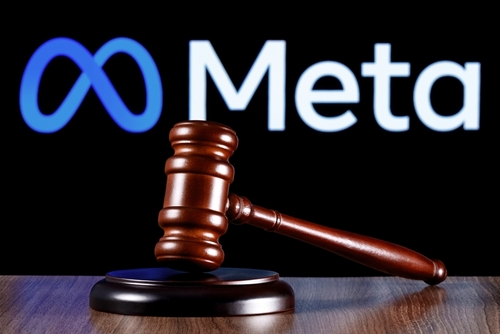Will solo lawyers soon feel pressures that solo doctors do? | Tip on writing a 4th Circuit brief

My Shingle blogger and Washington, D.C., solo Carolyn Elefant took note of a Pittsburgh Post-Gazette article about a obstetrician and gynecologist who practiced independently, outside local physician networks. Many specialists feel pressure to join networks because “a typical physician employment contract includes a clause requiring the doctor to refer all patient services within that system except in specific circumstances,” Pittsburgh lawyer Mike Cassidy told the newspaper.
“Is this what we want for the practice of law? Because that’s exactly what many of the branded networks will deliver,” Elefant wrote. “Although current ethics rules theoretically protect against mandatory in-network referrals since clients have an ‘unfettered’ right to the lawyer of their choosing, you can bet that if rules on outside investment are changed, we’ll see a relaxation of other rules as well.”
When you write a 4th Circuit brief …
… make the case for an oral argument, Baltimore lawyer Steve Klepper wrote at Maryland Appellate Blog last month.
“Inconspicuously placed at the conclusion of Fourth Circuit Local Rule 34(a) is a provision that ‘parties may include in their briefs at the conclusion of the argument a statement setting forth the reasons why, in their opinion, oral argument should be heard.’ Forget the word ‘may.’ The Local Rule 34(a) statement is, I submit, the most important part of an appellant’s brief.”
Why? “Virtually all” of the court’s reversals are in cases in which it hears oral argument. “The odds of reversal rise dramatically to about 1-in-3 if the Fourth Circuit grants argument. Step No. 1 for an appellant, therefore, is to convince the Fourth Circuit that the appeal warrants oral argument.”
However, at De Novo: A Virginia Appellate Law Blog, Virginia lawyer Jay O’Keeffe wonders if Kepler is confusing correlation and causation. “The good appeals will tend to garner both oral argument and reversal, but I don’t think that they necessarily result in reversal because the court granted oral argument. Instead, both the grant of the oral argument and the ultimate reversal flow from the merits of the case. … For my money, the most important part of a Fourth Circuit brief is either the statement of the case or the summary of the argument, depending on the case.”
Can I get points for that?
North Carolina lawyer Lee Rosen confesses in a post at Divorce Discourse that he’s an extreme couponer of sorts when it comes to accumulating points and rewards for free travel and hotel rooms via credit card registrations and gift card purchases.
“My biggest regret is not having maximized the rewards from my credit cards for the first 20 years of running my practice,” he wrote. “The free hotel rooms are amazing. I spent days in Sydney in a great room overlooking the harbor. The free week in the Conrad in Chicago was a blast. The week in Tribeca was terrific. I especially love it when my free room comes with a free breakfast: it’s a two-fer!”
He says he reads The Points Guy blog to help him find “crazy schemes,” like 100,000 American Airlines miles for signing up for a credit card. He also uses point-reward credit cards for as much as possible. “Many of us pay our office expenses with checks,” Rosen wrote. “How last century. Most vendors will accept credit cards, and you can get points for all of those expenditures. Why not get what you can? Check all of your vendors and see whether they take cards. We’re even paying our office rent with a card.”
Rosen admits that this isn’t a hobby for anyone “with anything important to do. This is an odd hobby for a peculiar type of person. I love it. It keeps me off the streets.”
The ‘Full Kagan’
At Excess of Democracy, Pepperdine University law professor Derek T. Muller took note of Above the Law’s update on clerk hires by U.S. Supreme Court justices.
He noticed that Justice Elena Kagan hired four clerks from four different judges on the U.S. Court of Appeals for the District of Columbia Circuit. “In homage of the ‘Full Ginsburg, I thought I’d call this move the “Full Kagan.’ Sure, it’s not ‘full’ in the sense that she’s selected a clerk from every D.C. Circuit judge, but it’s close enough for the phrase to work,” he said, referencing lawyer William H. Ginsburg’s appearance on five Sunday-morning talk shows on the same day.
Now a justice that selected four D.C. Circuit clerks from four different judges appointed by four different presidents … that’s for another day (but, perhaps, the “Full Kagan, Squared”?).



